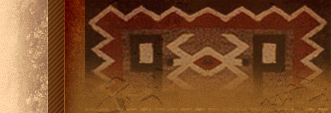 |
 |
| |
The Land is Alive
|
|
| |
The land is vitally important to everything Tapestry does. A primary tenet of Indigenous worldview that informs much of what we do and how we do it is that "the land is alive." We have learned this statement can be confusing to people who weren't raised in Indigenous worldview, and that they often think we mean things by it that we don't mean at all. So here is clarification:
1. We mean the term "alive" literally, not as metaphor. The land has vision, voice, and inherent autonomy. However: We do not mean that the land is alive in the same way a human being is alive, or that it is sentient in the same way a human being is sentient. The land is not a human being; it is the land. To see it as a human being is human-centric and presumptuous.
2. The land is the source of animals and plants whose bodies are made of its elements, soils, and waters. The land is likewise a source of language, ritual, dream, story, and wisdom of many different kinds. However: We do not mean that we "worship" the land. We respect the land for its wisdom and the role it plays in all life. Showing respect for an individual human being is not "worship" of that human being, and the same is true for the land.
3. The land naturally provides living beings with all the things they need to survive well. Native plants, animals, and people should ideally be able to live in a given area without importing anything (food, water, or other resources) from somewhere else. That is the true nature of the concept called "sustainability" in modern culture. It means sustainability is not a human-created concept or ethic, but a natural one.
4. Everything is part of the land in some way -- human beings, other animals, plants, stones, water, stories, rituals, dreams, and other things -- so we can learn from all these things equally, though in different ways. They are all parts of a single whole, connected and related at many levels. This is the true nature of the concept called "ecology" in modern culture. It means that ecology, too, is not a human-created concept or ethic, but a natural one.
Important Note: The statements on this page are not intended to express "Indigenous worldview" in any universal or representative way. They represent the views of Tapestry's founder and vision-keeper, and are provided to facilitate communication and good relationship between Tapestry and the non-Indigenous people and organizations we work with, who may be unaware of the critical differences in worldview between us, that can lead to misunderstanding and frustration.
|
|
|
|
|
|
 |
|
|

